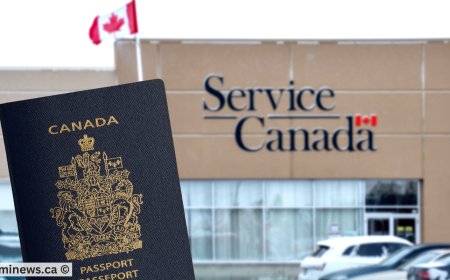Psychologists Canada Immigration Pathways: Understanding Salaries, Work Roles, and Best Provinces
Welcome to the pathway to Canada immigration for skilled professionals and trade workers. This guide is specifically tailored for Psychologists looking to work and settle in Canada, offering a deep dive into the essential aspects of immigration and employment in this field.
Introduction
Are you a psychologist considering a move to Canada for career opportunities? In this article, we will explore the prospects for psychologists in Canada, focusing on the National Occupation Classification code (NOC Code) 4151. We will cover the profile description, main job duties, education and licence requirements, skills needed for success in this field, median salary and retirement prospects, as well as possible visa options for psychologists looking to immigrate to Canada. Whether you are a seasoned professional or a recent graduate, this article will provide valuable insights into the career and immigration prospects for psychologists in Canada.
What is the Profile Description of a Psychologists as per the Canadian National Occupation Classification (NOC) Standards?
Psychologists are professionals who specialize in assessing and diagnosing various behavioral, emotional, and cognitive disorders. They provide counseling and therapy to clients, conduct research, and apply theoretical knowledge to understand human behavior and mental processes. Their goal is to help clients improve their psychological, physical, intellectual, emotional, social, and interpersonal functioning. Psychologists work in a variety of settings, including private practice, clinics, hospitals, schools, and research agencies, to support individuals in achieving mental well-being and personal growth.
What are the Main Job Duties of a Psychologists in Canada?
- Examine and assess behaviour, diagnose behavioural, emotional and cognitive disorders, counsel clients and provide therapy
- Help clients manage physical illness and disorders
- Counsel individuals and groups to achieve more effective personal, social and vocational development and adjustment, and offer mediation services
- Plan intervention programs, conduct program evaluation, and apply psychological theory and principles to develop treatment programs
- Conduct research, publish research papers, deliver presentations, and provide consultation services to government and other organizations
What are the Education, Certifications, and Licensing Requirements to Work as Psychologists in Canada?
To become a Psychologist in Canada, individuals must meet specific education and certification requirements depending on the province they wish to practice in. In Prince Edward Island, Quebec, Ontario, Manitoba, and British Columbia, a doctoral degree in psychology is necessary to use the title of "Psychologist." Master's degree holders in psychology can be recognized as Psychologists in Newfoundland and Labrador, Nova Scotia, New Brunswick, Saskatchewan, Alberta, the Northwest Territories, and Nunavut. In some provinces, such as Prince Edward Island, Ontario, Manitoba, and British Columbia, individuals with a master's degree in psychology can become a "Psychological Associate." Practical experience under supervision is typically required in most jurisdictions, along with passing the Examination for Professional Practice in Psychology (EPPP) in most provinces. Some provinces may also require oral examinations and board interviews for certification. Registration with a regulatory body and membership in the provincial professional association for psychologists are mandatory in all provinces, the Northwest Territories, and Nunavut. Psychologists have the opportunity to specialize in a particular area through additional training and experience.
What Essential Skills are Required for Psychologists to succeed in Canada?
The profession of a psychologist requires a diverse set of essential skills to be successful. Psychologists need to be able to examine and assess behaviour in order to diagnose behavioural, emotional, and cognitive disorders, as well as provide therapy to individuals and groups. They must possess strong counselling skills to help clients achieve more effective personal, social, and vocational development and adjustment. Psychologists must also be able to apply psychological theory and principles to understand behaviour and mental processes, as well as plan intervention programs and conduct program evaluations. Additionally, psychologists need to be skilled in conducting research, formulating hypotheses, designing experiments, reviewing literature, and publishing research papers, educational texts, and articles. They are also required to provide consultation services to government and other organizations, administer standard psychological tests for assessment, interpret test results, offer mediation, conciliation, and arbitration services, deliver presentations at conferences, workshops, or symposia, and help clients manage physical illness and disorders. Overall, a successful psychologist must possess a combination of clinical, research, counselling, communication, and analytical skills.
What is the Median Age and Retirement Age for Psychologists in Canada?
Skilled professionals working as Psychologists have a median age of 48.0, indicating that a significant portion of individuals in this field are in the middle of their careers. The average retirement age for psychologists is 64.0, suggesting that many in this profession continue working well into their 60s before transitioning into retirement. This data highlights the longevity and dedication of psychologists in their careers, as well as the value they bring to their field through continued contributions and expertise over many years of service.
How many job openings exist for Other Psychologists in Canada, and what's their provincial distribution?
There are a total of 46 job openings for the profile of Psychologists in Canada. The province with the highest number of job openings is Québec with 27 positions available. Following Québec, Ontario has 8 job openings, New Brunswick has 5 job openings, British Columbia has 4 job openings, Alberta has 1 job opening, and Yukon has 1 job opening as well. The provinces with the maximum job openings are Québec and the provinces with the minimum job openings are Alberta and Yukon. Job seekers in the field of psychology may have better chances of finding employment in Québec compared to other provinces in Canada.
What is the hourly wage or salary of Psychologists in different Provinces of Canada?
In Canada, psychologists can expect to earn varying wages depending on the province in which they work. In British Columbia, psychologists earn a high wage of $65.00, a median wage of $44.15, and a low wage of $32.21. Moving eastward to Alberta, psychologists earn a high wage of $66.63, a median wage of $46.67, and a low wage of $20.00. In Saskatchewan, psychologists earn a high wage of $62.64, a median wage of $49.74, and a low wage of $29.05. Manitoba follows with a high wage of $52.88, a median wage of $35.90, and a low wage of $27.35. Ontario sees psychologists earning a high wage of $68.68, a median wage of $43.24, and a low wage of $19.80. In Quebec, psychologists earn a high wage of $50.55, a median wage of $45.00, and a low wage of $24.04. Moving further east, psychologists in New Brunswick earn a high wage of $46.15, a median wage of $36.50, and a low wage of $15.30. Lastly, in Nova Scotia, psychologists earn a high wage of $56.41, a median wage of $41.35, and a low wage of $17.00. These wage differences reflect the varying cost of living and demand for psychologists across different provinces in Canada.
What are the various visa options available for Psychologists migrating to Canada?
Psychologists looking to migrate to Canada have multiple visa options to choose from. They can apply through the Express Entry visa category, which is a point-based system that evaluates candidates based on factors such as age, education, work experience, and language proficiency. They can also explore Provincial Nominee Programs, where specific provinces in Canada nominate candidates who meet their labor market needs. Additionally, psychologists can consider Employer Sponsored Work Visas where an employer in Canada can sponsor their work permit. Other visa options may also be available for psychologists seeking to move to Canada. To discuss all the options in detail and to understand the process better, you can book an appointment with our professionals today.
Have Questions or Need Assistance?
If you have any queries or require assistance with your immigration plans, we're here to help. Our experienced immigration consultants are ready to provide personalized guidance tailored to your specific needs.
Don't hesitate to reach out and schedule an appointment today. Whether you're seeking clarification on immigration processes, exploring visa options, or need support with documentation, we're dedicated to assisting you every step of the way.
Book an appointment with our team to discuss your immigration goals and receive expert guidance for your journey to Canada.
What's Your Reaction?
 Like
0
Like
0
 Dislike
0
Dislike
0
 Love
0
Love
0
 Funny
0
Funny
0
 Angry
0
Angry
0
 Sad
0
Sad
0
 Wow
0
Wow
0









































































